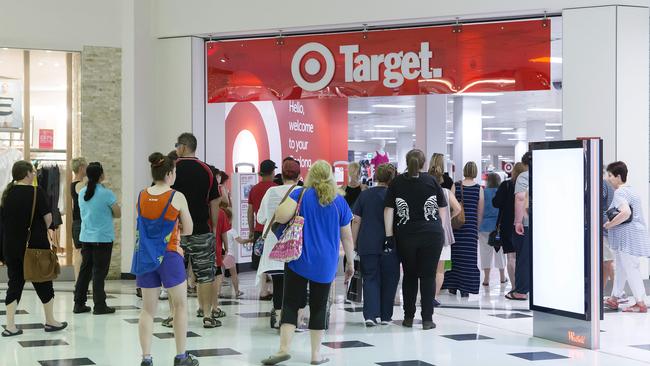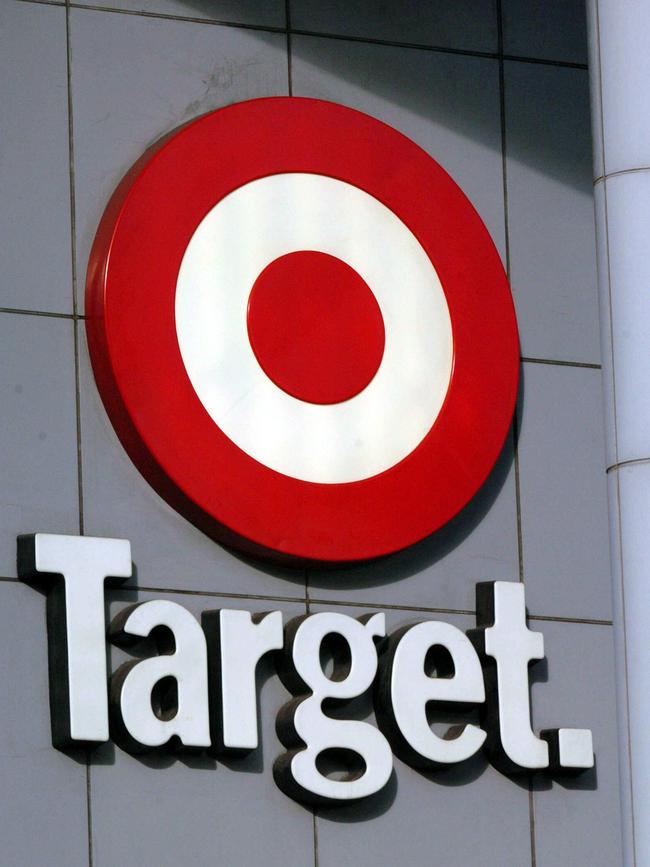Target sheds jobs in push to go up-market
Target doesn’t want to be lumped in with discount stores like Kmart and Big W anymore. Instead, the retailer wants to move upmarket like Country Road or Myer. And its new strategy has started with job cuts.

Business
Don't miss out on the headlines from Business. Followed categories will be added to My News.
Target will make 80 positions at its head office redundant as part of a new strategy that will see it move upmarket by offering better quality clothing, fashion and home furnishings to put some distance between it and the discount department store sector.
Target will be repositioned over the next two to three years to represent a more quality product offer that offers value rather than simply heavy discounting and bargain-basement prices.
Staff at Target began to attend briefings this morning, where they were informed about the corporate restructure that will see large changes across key management roles in buying, sourcing, marketing and other head office roles.
It will see 80 corporate roles made redundant. There will be an attempt to redeploy staff to other parts of the retailer and its parent company, Wesfarmers.
Changes within the stores would be seen over the next two years, with managing director Ian Bailey saying he believed it was the right time to recast Target as offering shoppers a better quality fashion or homewares product that could match it with more middle market or up-market retailers like Myer or Country Road — but at much more affordable price points.

The re-engineering of key buying and sourcing teams under Kmart managing director Mr Bailey, who is also responsible for Target and recently acquired Catch Group, is part of his gambit to accelerate the business transformation of struggling Target and return it to the successful retailer it was almost a decade ago.
Mr Bailey has told his staff that Target will switch its attention to improving its offer, and the quality of the offer, around three categories — women and men’s clothing, “soft” furnishings (bedding, cushions, linen etc) and toys — and that the head office management needed to be restructured to meet this challenge.
He said Target needed to stand for better quality products, and it would stand apart from stablemate Kmart and other retailers in the discount sector such as Big W and Best & Less and instead would take the fight to more upscale chains.
“When you are looking at who we would benchmark ourselves against I think the benchmark is less about Kmart and Big W, it is much more about the specialty retailers and others who are out there who sell similar products at a higher price.
“It could be Cotton On, Country Road, it could be Myer, so anybody within that space which is selling good quality products but at a higher price than Target would sell. It is very much this value based offer but for higher quality products.”
RELATED
WHY DID DEBANHAM’S AUSSIE DREAM DIE?
WHAT WILL HAPPEN WHEN ARNOTT’S JAR RAIDED?
He said it was still a discount department store, in terms of prices, but at much better standards and quality.”
Target has been in the doldrums for almost a decade, writing off hundreds of millions of dollars and struggling to turn a decent profit.
In January, Wesfarmers, which owns Kmart and Target, revealed that sales at Target was still under pressure, only growing 0.2 per cent for the first half and same store sales up 0.5 per cent.
Last year Target booked total impairments of $306 million against the carrying value of its brand name, remaining goodwill and property and equipment.
To help resuscitate earnings and drive more efficiency from the business Mr Bailey told investors last year he intended to reduce around 20 per cent of Target’s selling space in the next five years.
The Australian



